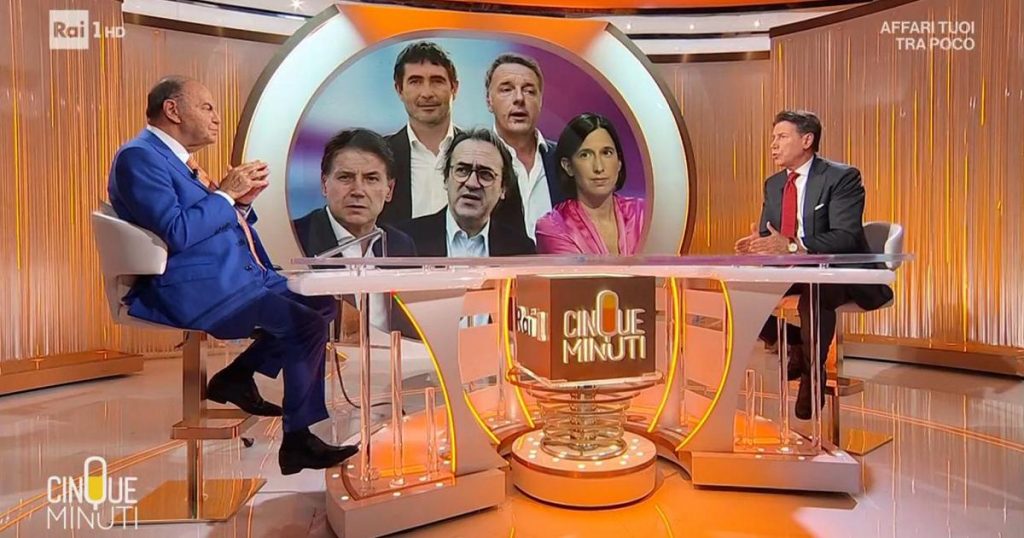Giuseppe Conte has definitively declared on Rai Uno that the wide field no longer exists, certifying this decision for the evening. This statement marked the final separation between the M5s and Iv parties, as they will not be running together in the upcoming elections in Emilia-Romagna and Umbria. The response from the Democratic Party came from Senate group leader Francesco Boccia, with Marco Furfaro being even more direct in his disappointment with Conte’s decision. Meanwhile, Giorgia Meloni of the far-right party Brothers of Italy celebrated the news. In a recent interview, Conte also discussed the situation in Ukraine, expressing concern over the escalating tensions. He criticized the Western support for Ukraine and warned against the risks of military confrontation with Russia, emphasizing the need for diplomatic solutions and mutual concessions.
Conte’s reflections on the Ukraine crisis highlight his skepticism towards the aggressive measures taken by Western powers to support the country against Russian influence. He warned that the increasing military escalation, including the possible entry of Ukraine into NATO, could lead to catastrophic consequences, including a potential nuclear conflict. Conte emphasized the importance of prioritizing diplomatic negotiations and compromise to avoid the dangers of a military confrontation. His critique of the Western approach to the Ukraine situation reflects his belief in the need for a more nuanced and strategic approach to international relations, emphasizing dialogue and peaceful solutions over military brinkmanship.
The decision to split from the Iv party and not form an alliance with the Democratic Party in the upcoming elections reflects a strategic move by Conte and the M5s to assert their independence and political identity. Conte’s statement on Rai Uno marked the end of the political alliance between the two parties, signaling a shift in the balance of power within the Italian political landscape. This decision has implications for the upcoming elections in Emilia-Romagna and Umbria, as well as for the broader political dynamics in Italy. Conte’s willingness to break with traditional political alliances and forge a new path for his party indicates a willingness to challenge the status quo and pursue a distinct political agenda.
The reactions from the Democratic Party and other political figures to Conte’s announcement reveal the shifting alliances and rivalries within the Italian political scene. Francesco Boccia’s response to Conte’s decision reflected a mixture of disappointment and pragmatism, while Marco Furfaro expressed a more direct sense of betrayal. The celebration from Giorgia Meloni of the far-right Brothers of Italy party underscores the potential realignment of political forces in Italy following Conte’s declaration. The implications of this political shift remain to be seen, as the upcoming elections will test the strength of the M5s and its ability to attract support from a broad spectrum of voters.
Overall, Giuseppe Conte’s recent statements on the Ukraine crisis and the political landscape in Italy reflect his commitment to a pragmatic and diplomatic approach to international relations and domestic politics. Conte’s decision to break with the Iv party and pursue an independent political course signals a changing dynamic within Italian politics, with potential implications for the upcoming elections and beyond. The reactions to Conte’s announcement highlight the complex alliances and rivalries within the Italian political scene, as different parties and figures respond to the shifting political landscape. Conte’s emphasis on the need for diplomatic solutions and dialogue in international relations underscores his vision for a more peaceful and cooperative approach to global challenges. His willingness to challenge conventional political alliances and pursue a distinct path for his party suggests a new chapter in Italian politics, with the potential for significant transformations in the months and years ahead.


